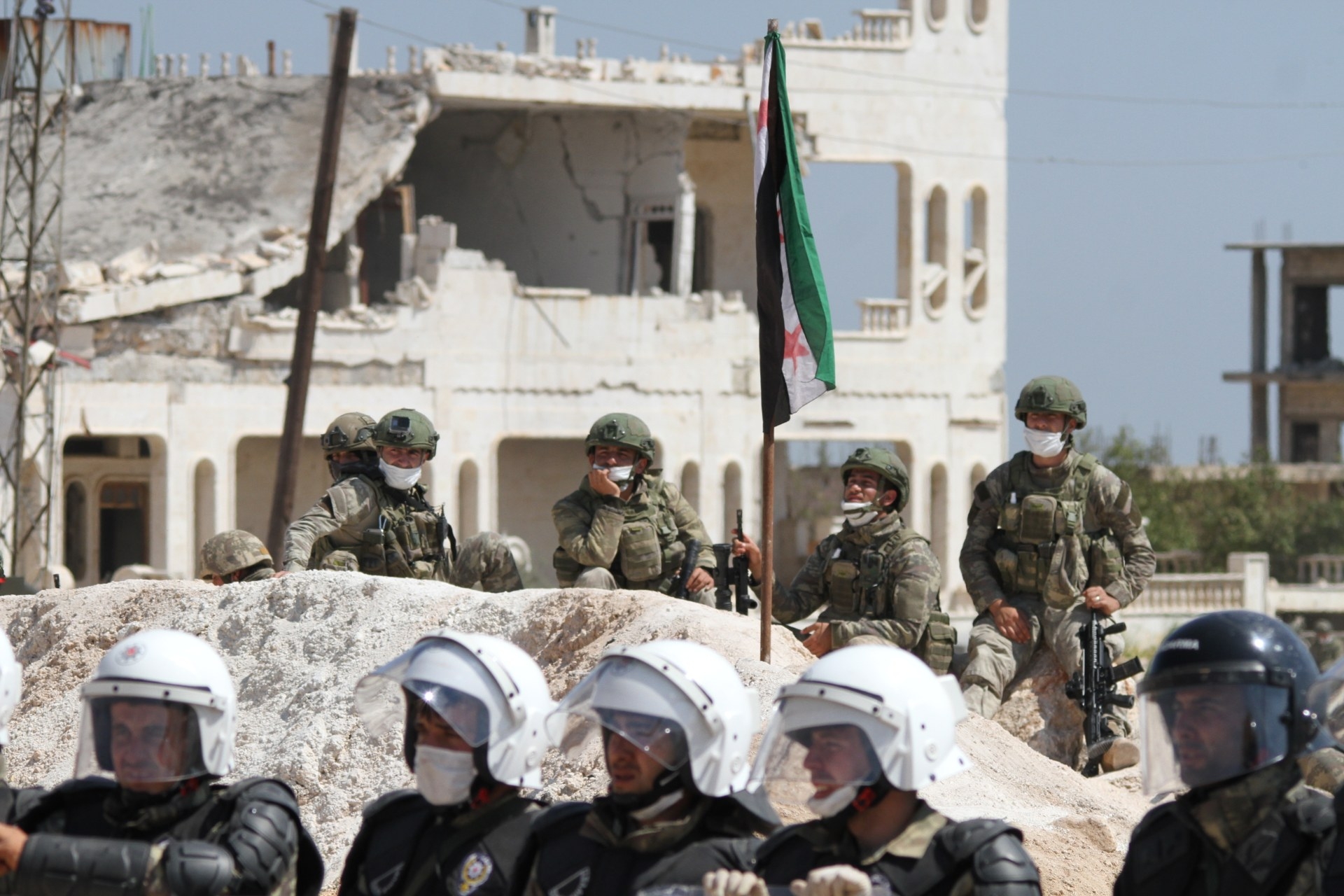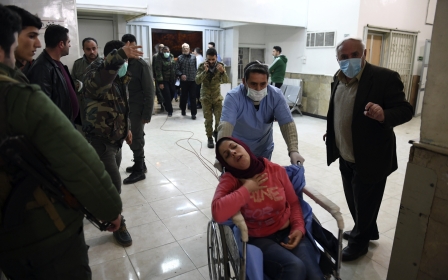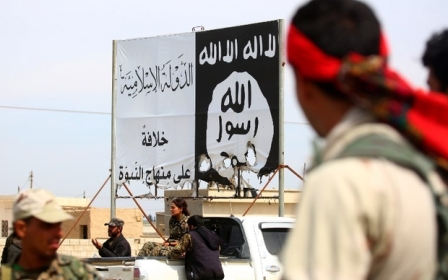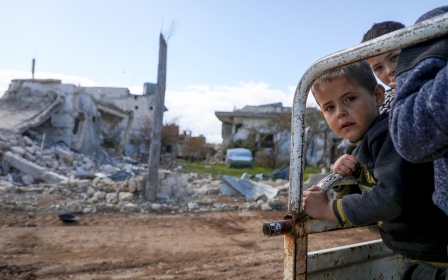Turkish crackdown on Idlib protest exposes Syrian rebel divisions

Sit-in protests against joint Turkish-Russian patrols on Idlib province’s M4 highway have cracked open divisions between Syrian rebels and a powerful militant group, placing pressure on the ceasefire deal in northwest Syria.
On Monday, dozens of Syrians demonstrated on the highly strategic road that runs across Syria’s final rebel-held province, unhappy at the presence of Russian forces that back President Bashar al-Assad.
When Turkish forces, who are coordinating with Russia in Idlib as part of a ceasefire deal, attempted to break up the sit-in, powerful militant umbrella group Hay’at Tahrir al-Sham (HTS) responded by arresting Turkey-backed rebel fighters.
“The tension escalated due to HTS’s arrest of Lieutenant Ramadan al-Dayoub with his brother and about 10 members of Faylaq al-Sham,” a commander from the rebel group told Middle East Eye.
“In a direct response, about 10 members of HTS have been arrested,” he added, speaking to MEE on condition of anonymity for security reasons. Both factions released those detained overnight.
New MEE newsletter: Jerusalem Dispatch
Sign up to get the latest insights and analysis on Israel-Palestine, alongside Turkey Unpacked and other MEE newsletters
'Without the consent of the military forces controlling Idlib, the sit-in cannot take place'
- Mohammed Salameh, Idlib political committee
According to the commander, HTS-controlled local authorities organised and promoted the sit-in, and Turkey-backed rebel groups helped break it up.
Backed by Russian air power, from December to March pro-Syrian government forces made sweeping gains in Idlib against HTS and rebel groups, killing hundreds and displacing a million people towards the Turkish border.
Turkish military intervention and a truce agreement hatched with Moscow in March stemmed the tide and eventually brought a halt to the fighting, and though that was largely welcomed by Idlib’s estimated three million inhabitants, the Russian presence along the M4 is anathema to HTS.
March’s Russia-Turkey agreement stipulated the creation of a 6km buffer zone south of the M4 under the supervision of Russia, with the same depth to the north overseen by Turkey.
Residents of villages in now-Russian controlled areas, meanwhile, remain in displacement, and began staging sit-ins on the highway around a month ago.
Among the protesters are independent activists and civil society figures, Mohammed Salameh, director of Idlib’s political committee, told MEE. But some fighters are also backing the movement, too, he conceded.
"It cannot be denied that there are military forces that finance part of the sit-in. Without the consent of the military forces controlling Idlib, the sit-in cannot take place," he said.
Violent dispersal
The confrontation at the sit-in on Monday quickly got violent.
Turkey appeared to deploy police forces rather than soldiers to confront the demonstrators on the M4 highway, which runs from east to west through southern Idlib, linking government-held Latakia and Aleppo provinces.
“The Turkish riot police removed the demonstrators’ tents by force, in cooperation with Faylaq al-Sham fighters,” Ahmed al-Hamoud, director of the local village of Ghadfa’s council, told MEE.
“At dawn, the ropes that held the tents down were cut, causing them to fall on the protesters, and then clashes broke out with riot police using fists and sticks,” he said, adding that many protesters lost belongings such as phones as they were chased away.
Turkish police fired tear gas to disperse the protesters, and brought in vehicles to remove stacks of soil and stones blocking the highway.
“The goal is to eliminate the sit-in altogether, because it prevents the work of Russian-Turkish joint surveillance patrols,” Hamoud, who visited the sit-in on Monday morning, said.
Contrasting opinions over the Russian-Turkish patrols have previously threatened to spark violence. Video footage has circulated in recent weeks of militant fighters threatening to attack the joint surveillance patrols.
Some civilians in Idlib fear that such confrontations will undermine the ceasefire and lead to Russia taking the entire road by force.
Earlier this year, Assad’s forces seized the highly strategic M5 highway close by.
“Since the ceasefire, there have been meetings between civil bodies, and not everyone has agreed on the sit-in,” Salameh said.
"The civilians are divided between those who support the Turkish agreement and those who reject it,” he added.
“The displaced wonder what guarantees there are that they will return to their villages. What are the guarantees that Russia will not violate the ceasefire?"
Middle East Eye delivers independent and unrivalled coverage and analysis of the Middle East, North Africa and beyond. To learn more about republishing this content and the associated fees, please fill out this form. More about MEE can be found here.




